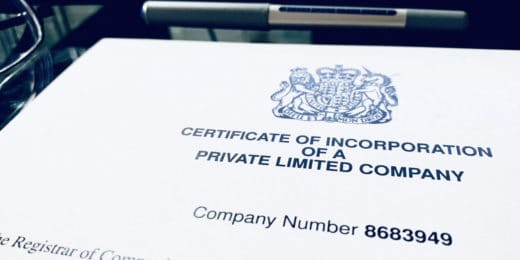A limited by guarantee company is an alternative type of business structure that is normally used by charities and other types of non-profit organisations. Companies limited by guarantee don’t have share capital or shareholders. Instead, they are controlled by one or more ‘guarantors’, each of whom guarantees a fixed sum of money to the business in the event of its insolvency.
Key takeaways
- Companies limited by guarantee are ideal for non-profit organisations, ensuring all income supports their charitable objectives.
- Guarantors enjoy limited liability, with their financial risk capped at a predetermined amount, typically £1.
- Registering a limited by guarantee company can be completed online in under 24 hours, simplifying the formation process.
Typically, guarantors do not take any profit from the business. All surplus income is kept in the company and used to achieve its non-profit objectives.
Overview of a limited by guarantee company
- Ideal for non-profit organisations like charities, sports associations, social clubs, co-operatives, and membership organisations. Can also be used by commercial businesses, but a limited by shares structure is better for such purposes
- Must have at least one director (manager
- Must have at least one guarantor (owner)
- Director and guarantor can be the same person
- No limit to the number of directors and guarantors the company has, unless there is a specific restriction specified in the articles of association
- No shares or shareholders in this type of company structure (although a small amount of historical limited by guarantee companies may still have them)
- Must have a registered office address in the country of incorporation
- Members ‘guarantee’ a fixed amount of money to the company. These financial guarantees must be paid if the business can’t pay its debts
- Guarantors are protected by limited liability. The sum they each guarantee is the limit of their individual liability
Registration requirements
Limited by guarantee companies are set up in the same way as limited by shares companies. You can use the services of an online company formation agent to register a ready-to-trade company in under 24 hours. You can also use Companies House Web Incorporation or postal services, but these methods of registration do take significantly longer and cost more.
To complete an online application to register a company limited by guarantee, the following information will be required:
- Company name
- Minimum of one ‘natural’ director aged 16 or above
- Minimum of one guarantor
- Service address for each subscriber (guarantor)
- Details of all people with significant control (PSCs) of the company
- Registered office address in the same country in which your firm is incorporated – England and Wales, Scotland or Northern Ireland
- SIC code(s) to state the nature of the company’s business activities
What is a Statement of Guarantee?
To register a company limited by guarantee, the subscribers (guarantors) must complete a Statement of Guarantee during the company formation process. This is a statutory requirement under section 11 of the Companies Act 2006 and outlines the circumstances under which the guarantors have to pay their guarantees.
Each subscriber named on the memorandum of association must agree to the following Statement of Guarantee:
I confirm that if the company is wound up while I am a member, or within one year after I cease to be a member, I will contribute to the assets of the company by such amount as may be required for:
- payment of debts and liabilities of the company contracted before I ceased to be a member;
- payment of costs, charges and expenses of winding up, and;
- adjustment of the rights of the contributors among ourselves, not exceeding the specified amount below.
The amount guaranteed by each subscriber will be outlined in the Statement of Compliance. This will set the limit of their financial liability. In most cases, a nominal value of £1 is agreed by each subscriber. This must be paid when requested by the company.
Each subscriber to the memorandum must sign the Statement of Compliance. This shows that they agree to the Statement of Guarantee and the guaranteed sum.
Our limited by guarantee company formation package
Rapid Formations provides a comprehensive online formation package for registering a company limited by guarantee in England and Wales, Scotland or Northern Ireland in under 24 hours. We provide a standard set of articles of association with this package.
The entire application process is completed online. There is no need to sign any paperwork or send documents by post. As soon as Companies House approves your application, we will send you digital copies of your incorporation documents by email. You will also receive paper copies by post within a few days.
We also provide a range of company address services in London and Glasgow, including a prestigious Registered Office Address, a Service Address and a Business Address.











Join The Discussion
Comments (5)
Hi
We have recently switched from an unincorporated charitable institution to a company limited by guarantee and also to a registered charity.
Is there a legal requirement to switch over bank accounts because they are assets even though the name is identical?
Thanks
Dear Sir
We would advise that you inform a bank about any corporate changes however you should read your bank’s Terms and Conditions or speak to your account manager to clarify bank’s procedures. Unfortunately we are not able to advise on such matters as different banks have different rules.
Best regards,
Rapid Formations Team
Good Afternoon
We are looking at setting up an Institute to represent a very specialist area of engineering. The structure we had in mind was a Scottish registered CLG (we have an address for the registered office). We envisage the CLG becoming a registered charity in Scotland (but not immediately). We also believe that there is a reasonable chance that we could ‘merge’ with another charity at a future date. For these reasons we believe that a SCIO is not the best option but rather a CLG then register as a charity (even at the expense of some extra administration).
We are aware of the sensitivity of using “Institute” in the title (which is essential) and would ask – what information/support documentation would you require in this instance to set up the CLG with the word Institute?
Can you also confirm the timescale required to complete the CLG with costs.
Kind regards
Bill
Hi Bill,
Sounds like an exciting venture you are planning!
To use the word ‘Institute’ in your company name, you will need to include a letter with your application that clearly explains why you believe your company/organistaion deserves to be classed as an institute. You will also need to include other documentation from relevant, independent/professional bodies in your field to support your case. Your application will be reviewed by the Secretary of State at Companies House, so we have no control over the outcome.
The cost of our CLG formation package is £14.99, excluding the £100 Companies House fee (see here: https://www.rapidformations.co.uk/compare-packages/). We can also provide you with a Scottish registered office, service address and business address if required.
It should only take you about 5 – 10 minutes to complete your application form, if you have all of the required information to hand. Once it has been submitted to us, we will quickly review it for any obvious errors and then send it via secure software filing to Companies House. Ordinarily, it takes around 3 hours for applications to be processed and approved by Companies House, but it may take longer due to the sensitive company name – I would advice submitting your application as early as possible on a weekday morning.
I hope this information has been helpful, but please do get back in touch if you want to ask anything else or need help during the company formation process.
Best wishes and good luck,
Rachel Craig
Good afternoon,
I am making enquirers about forming a social enterprise could you please provide a quote for the following including any yearly fees:
*Company formation (limited by guarantee)
*Registered office address
*Directors address &
*Business address.
Kindest regards
Bunmi